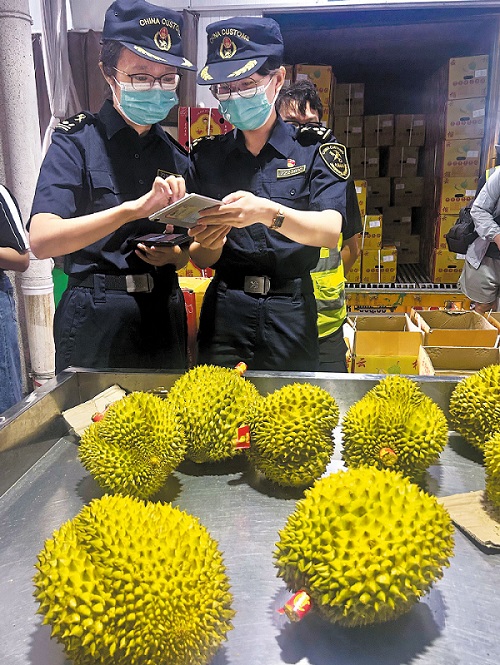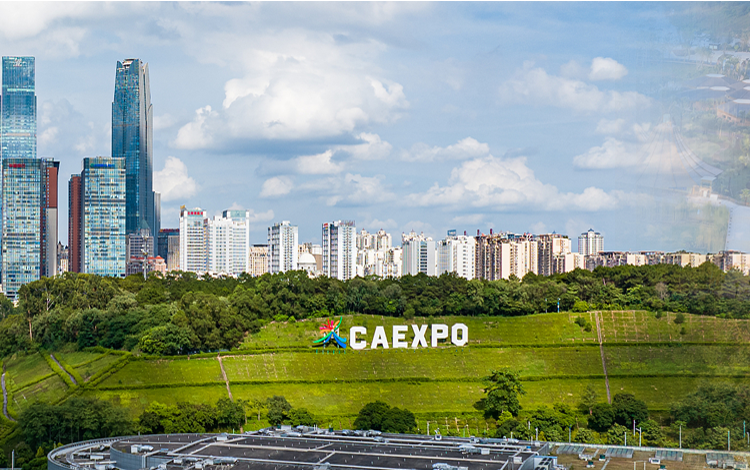Guangxi expedites border customs clearances

Two customs officials inspect durians being imported via the Friendship Pass, Guangxi Zhuang autonomous region, in August. ZHAO JIA/CHINA DAILY
At the port of the Friendship Pass in Pingxiang, South China's Guangxi Zhuang autonomous region, there is a steady stream of trade convoys from China and Vietnam, clearing customs in an orderly manner.
Li Hainan, a 48-year-old truck driver, who often travels between China and Vietnam and is a native of Pingxiang, said that compared with previous manual inspections, now he only needs to scan his face and provide his fingerprints, and then he can pass through customs quickly.
"In the past, manual inspection took a few minutes, and there were few customs clearance points, resulting in long queues for trucks. Therefore, we could only go back and forth once a day. Now I can drive two or three times a day, and my income has increased as a result," Li said.
Li's experience is a reflection of the improvements in customs clearance at the Friendship Pass. In July last year, the exit-entry border inspection rapid customs clearance system "version 2.0" was launched with advanced technologies such as artificial intelligence and biometric information identification, making the entire exit-entry vehicle declaration process paperless.
The inspection time for a single vehicle has been reduced to less than 15 seconds compared with one minute on average before. Also, the number of cargo inspection channels has been increased from six to 12.
Construction started on the first cross-border smart port project between China and Vietnam in September last year with the expectation of doubling the maximum clearance capacity.
From July to Aug 22, the number of exit-entry vehicle inspections has exceeded 310,000, surging about 20 percent year-on-year, effectively ensuring the smooth flow of the international industrial chain and supply chain, said Xiong Chuzhou, an official with the Friendship Pass inspection station.
The role of the Friendship Pass as the main channel for China-Vietnam freight services has become more prominent, Xiong added.
When President Xi Jinping inspected Guangxi in December last year, he emphasized that the region should faithfully implement new development philosophies on all fronts, leverage its own advantages, and foster a strong sense of community for the Chinese nation to make greater achievements in promoting high-quality development in border areas.
Analysts said Guangxi, with China's largest ethnic minority population, is pursuing all-round opening-up and cooperation, and building itself into a convenient place for business operation and the dual circulation of domestic and international markets to vitalize the border and enrich the people.














